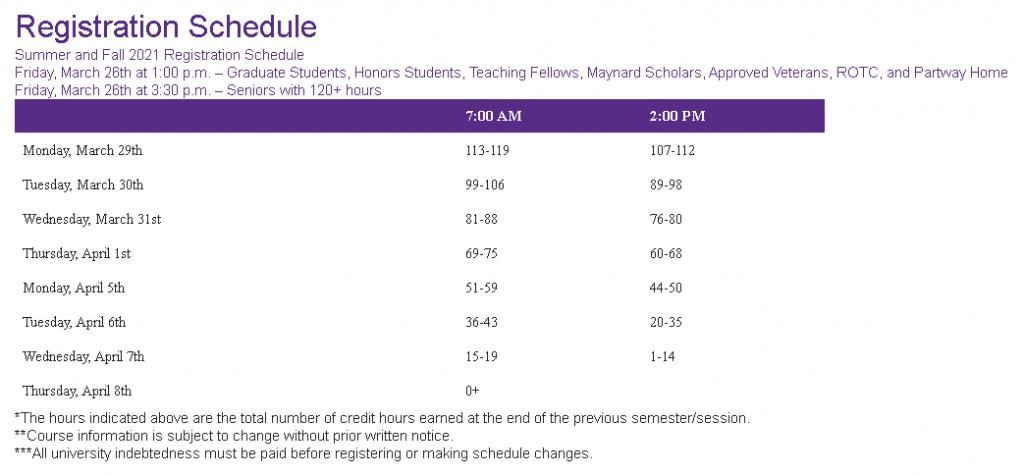Early registration – for special categories – begins on Friday, March 26.
For most students registration begins Monday, March 29.
When you register depends on the number of credit hours you have completed PRIOR to this semester: The number of COMPLETED HOURS, as of December 2020.
You can find number this by checking DegreeWorks. The number you are looking for is the “overall credits,” listed below your minor (in the right hand column, at the top). Do NOT use the “credits applied” – this number includes the classes you are currently enrolled in.
See below:

More information is available from your adviser.
